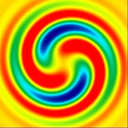20(S)-protopanaxadiol, an active ginseng metabolite, exhibits strong antidepressant-like effects in animal tests.
Keywords
Abstract
Ginseng has been used for mood adjustment in traditional Chinese medicine for thousands of years. Our previous study has shown that, total ginsenosides, the major pharmacologically functional ingredients of ginseng, possess antidepressant activity. In the present study, we hypothesized that an intestinal metabolite of ginseng, 20(S)-protopanaxadiol (code name S111), as a post metabolism compound (PMC) of ingested ginsenosides, may be responsible for the antidepressant activity of ginseng. To test this hypothesis, antidepressant-like activity of orally given S111 was measured in animal tests including tail suspension test, forced swimming test and rat olfactory bulbectomy depression model. In all those tests, S111 demonstrated antidepressant-like activity as potent as fluoxetine. S111 treated bulbectomy animals had higher levels of monoamine neurotransmitters in the brain and in vitro reuptake assay showed that S111 had a mild inhibitory effect. Furthermore, S111 but not fluoxetine significantly reduced brain oxidative stress and down-regulated serum corticosterone concentration in bulbectomy animals. No disturbance to central nervous system (CNS) normal functions were found in S111 treated animals. These results suggest that the ginseng active metabolite S111 is a potential antidepressant. Since the monoamine reuptake activity of this compound is rather weak, it remains to be investigated whether its antidepressant-like effect is by mechanisms that are different from current antidepressants. Furthermore, this study has demonstrated that post metabolism compounds (PMCs) of herb medicines such as S111 may be a novel source for drug discovery from medicinal herbs.


